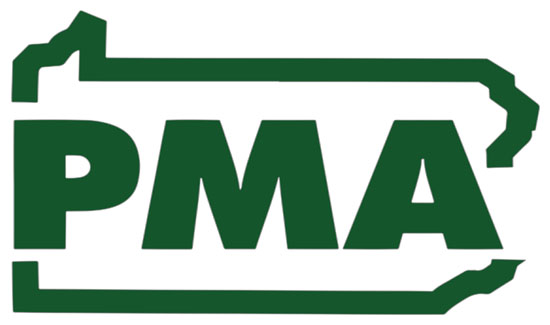Pennsylvania’s Long Climb to Competitiveness Begins Now

For the first time in decades, a business tax reform plan, which includes a scheduled phase-down of the state’s highest-in-nation flat-rate Corporate Net Income Tax (CNIT), has been approved in Harrisburg.
The tax reforms were approved as part of a $45.2 billion budget plan that lawmakers and the governor’s office fashioned with the help of billions in leftover pandemic funds, and unprecedented high tax receipts.
State business leaders applauded lawmakers for working in a bipartisan manner and Gov. Tom Wolf for not insisting, as he has until now, on attaching provisions that would reduce or nullify the benefits of the CNIT reduction.
“The start of a promised phase-down of Pennsylvania’s CNI tax is very welcome news,” said David N. Taylor, President & CEO of the Pennsylvania Manufacturers’ Association. “After a quarter-century of stagnation, the commitment by state government to improve our competitive position is long overdue.”
But the praise comes with a cautionary message. Taylor noted that even after the first-year reduction of a point, the CNIT rate will still be non-competitive with other states, and that the ten-year scheduled phase-out of the Capital Stock and Franchise Tax took fifteen years, due to delays caused by governors and legislatures of both parties.
“Defending the promised CNIT phase-down will be critically important in each annual budget from now on. The longer the phase-down continues without interruption, the more likely it will become politically that we will reach our destination,” Taylor said.
Under the plan, the 9.99 percent CNIT rate drops to 8.99% this fiscal year. It then falls a half a point in the succeeding years until it drops to 4.99 percent by 2031. Indiana’s Corporate Net Income Tax rate today is 4.90 percent. (See map) PMA’s Executive Director Carl Marrara said that the changes will also cover small business taxes as companies that pay the personal income tax rate (s-corp, LLC) can now take advantage of Section 179 expense deductions to invest in operations and equipment, and like-kind exchanges.
“This is the first major business tax reform package in decades,” Marrara said. “In 1995, then Governor Tom Ridge signed a tax code that lowered PA’s tax rate from 11.5% to the current 9.99%. As more overseas operations are being reshored, states are competing for business talent, capital, and investment.”
The lowering of PA’s CNIT and consistency in tax treatment to PA’s small businesses is more important than ever to compete for this investment.
Greg Moreland, The Pennsylvania State Director of the National Federal of Independent Business, also praised the passage of the tax reforms, but said that inaction on the state’s on the struggling Unemployment Compensation Trust Fund was “extremely disappointing.”
“This inaction means that – for years to come – small businesses will be paying the tab for pandemic related layoffs and closures mandated by their own state government in the form of higher unemployment insurance costs,” Moreland said. “Nearly 35 states have utilized federal pandemic aid to restore and stabilize state unemployment systems. While it is extremely discouraging Pennsylvania ignored this opportunity to stabilize local economies and jumpstart our recovery, NFIB will continue its advocacy and pressure on this issue until UC relief is realized.”
The budget also includes an additional $125 million – for a total of $405 million in funding — for the popular and highly successful Educational Improved Tax Credit (EITC) Program, which provides business credits for sponsoring a child’s education.
“Our caucus has long understood that a child’s ZIP code should never predetermine their outcome in life,” said Speaker of the House Bryan Cutler (R-Lancaster). “The EITC program has proven to be a vital tool in helping children find the right match for their personal educational needs.”
As part of the deal, the governor agreed to pull back on burdensome charter school regulations approved in March.
The budget deposits $2.1 billion into the state’s “Rainy Day Fund,” raising the total balance to $5 billion, and providing a buffer against higher taxes in future lean years.
Finally, the budget includes a $525 million increase for Basic Education Funding, $225 million to provide additional support for the state’s 100 poorest school districts, a $100 million increase for Special Education funding, an additional $60 million for Pre-K Counts and $19 million more for Head Start Supplemental Assistance.
And as part of the deal with the governor’s office, a measure in the budget package bans election officials from accepting private funding to help underwrite the cost of managing elections. Leading up to the 2020 General Elections, Facebook founder Mark Zuckerberg pumped hundreds of millions of dollars through a non-profit to state and local election officials, who, as part of the deal to accept the money, had to follow a set of election practices established by the non-profit.
The budget passed in final last week with a vote in the House of 180-20 and 47-3 in the Senate.







